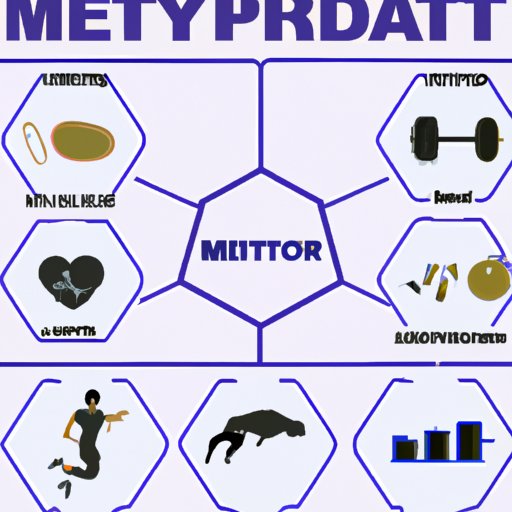Introduction
Metabolism is the process by which your body converts food into energy. It’s an essential part of life and can be affected by many different factors, including dieting. When you go on a diet, it can slow down your metabolic rate and make it harder to lose weight. Fortunately, there are ways to prevent this from happening. In this article, we’ll explore how to stop your metabolism from slowing down when dieting.
Increase Protein Intake
Eating more protein can help boost your metabolism and prevent it from slowing down when dieting. Protein is made up of amino acids, which are the building blocks for muscle. Eating more protein helps your body build more muscle, which in turn increases your metabolic rate. Additionally, protein takes longer to digest than other macronutrients like carbohydrates, so it keeps you feeling fuller for longer and prevents overeating.
There are several ways to add more protein to your diet. Lean meats like chicken, turkey, and fish are all excellent sources of protein. Other good sources include eggs, legumes, nuts, and seeds. If you’re looking for a quick and easy way to get more protein, protein powders are also a great option.
Eat More Frequently
Eating smaller, more frequent meals throughout the day can help keep your metabolism running at a higher rate. Eating every three to four hours keeps your body fueled with energy and prevents it from going into “starvation mode”, where it starts to conserve energy and slows down your metabolism. Additionally, eating smaller, more frequent meals can help to keep your blood sugar levels stable, which will also help to prevent your metabolism from slowing down.
Healthy snacks are a great way to get in extra nutrients and fuel your body throughout the day. Some healthy snack ideas include fruits, vegetables, nuts, seeds, yogurt, and granola bars. You can also make smoothies or protein shakes with protein powder for an even bigger boost.
Exercise Regularly
Regular exercise is key to keeping your metabolism running at its peak. Exercise helps to build muscle, which increases your metabolic rate. Additionally, it stimulates hormones that help to burn fat and increase your overall calorie burn. Aim for at least 30 minutes of moderate to vigorous exercise five days a week.
There are many different types of exercises that can help boost your metabolism. Cardio exercises like running, biking, and swimming are all great options. Strength training exercises like weight lifting and bodyweight exercises are also beneficial. High-intensity interval training (HIIT) is another type of exercise that has been shown to increase metabolism due to its intense bursts of activity.
Get Enough Sleep
Getting enough sleep is essential for maintaining a healthy metabolism. Lack of sleep can lead to hormonal imbalances that can slow down your metabolism and make it harder to lose weight. Aim for seven to nine hours of quality sleep each night.
To get the best quality sleep, try to maintain a consistent sleep schedule. Avoid caffeine, alcohol, and heavy meals before bedtime. Make sure your bedroom is dark and quiet and avoid screens before bed. Additionally, exercise during the day can help improve the quality of your sleep.
Add High-Intensity Interval Training
High-intensity interval training (HIIT) is a type of exercise that involves short bursts of intense activity followed by periods of rest. This type of exercise has been shown to increase metabolism due to its intense nature. Additionally, it can help to burn more fat and calories than traditional cardio exercises.
HIIT workouts can be tailored to any fitness level. Examples of HIIT workouts include sprints, burpees, jump squats, mountain climbers, and jumping jacks. Aim for two to three HIIT workouts per week for maximum benefits.
Monitor Your Calorie Intake
Tracking your calorie intake is important when dieting, as it can help you stay within your calorie budget and prevent your metabolism from slowing down. Tracking your calories can also help to ensure that you’re getting the right balance of macronutrients (protein, carbohydrates, and fat).
There are several ways to track your calories. You can use an app such as MyFitnessPal or a website like Cronometer. You can also manually track your calories using a notebook or spreadsheet. The most important thing is to be consistent and accurate when tracking your calories.
Conclusion
In conclusion, dieting doesn’t have to slow down your metabolism. By increasing your protein intake, eating more frequently, exercising regularly, getting enough sleep, adding high-intensity interval training, and monitoring your calorie intake, you can prevent your metabolism from slowing down when dieting. With these tips, you can reach your health and fitness goals in no time!
(Note: Is this article not meeting your expectations? Do you have knowledge or insights to share? Unlock new opportunities and expand your reach by joining our authors team. Click Registration to join us and share your expertise with our readers.)
